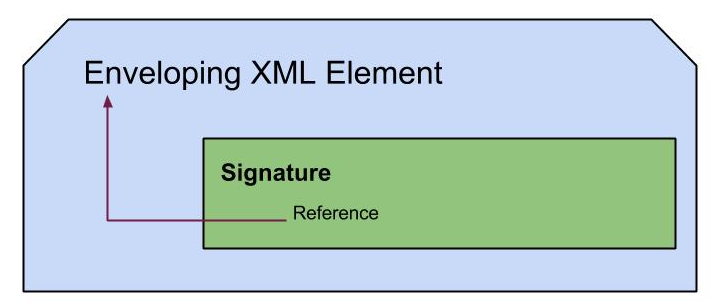WSO2 Identity Server - Extension Points - Part 2 - OAuth
OAuth2 is widely used in the enterprise today for authorization aspects of APIs. This is the second post on the extension points available in WSO2 Identity Server after WSO2 Identity Server - Extension Points - Part 1 - SAML
All the implementation using following extension point needs to be configured at <IS_HOME>/repository/conf/identity/identity.xml file under the element OAuth.
All the implementation using following extension point needs to be configured at <IS_HOME>/repository/conf/identity/identity.xml file under the element OAuth.
1. Custom OAuth grant handler
Usage:
When we need to support an OAuth flow that is different from standard grant types. Validates the grant, scopes, and access delegation.Sample:
https://docs.wso2.com/display/IS510/Writing+a+Custom+OAuth+2.0+Grant+TypeInterface:
org.wso2.carbon.identity.oauth2.token.handlers.grant.AuthorizationGrantHandler2. Client Auth Handler
Usage:
When the client credential authentication needs to be customized. By default we validate the client id and secret.Interface:
org.wso2.carbon.identity.oauth2.token.handlers.clientauth.ClientAuthenticationHandler3. OAuthCallbackHandler
An extension point provided to verify whether the authenticated user is the rightful owner of the resource. There can be multiple active OAuthCallbackHandler implementations at a given time. There are registered through the identity.xml. In run-time, each and every authorization callback handler is invoked to see whether it can handle the given callback. Then the callback with the highest priority will be chosen. After handling the callback, it can set whether the given callback is authorized or not.Interface:
org.wso2.carbon.identity.oauth.callback.OAuthCallbackHandlerAbstract Class / Default Implementation:
org.wso2.carbon.identity.oauth.callback.DefaultCallbackHandler4. TokenPersistenceProcessor
Implementations are used to process keys and secrets just before storing them in the database. E.g. to encrypt tokens before storing them in the database. Implementations of this interface can be configured through the identity.xml.Interface:
org.wso2.carbon.identity.oauth.tokenprocessor.TokenPersistenceProcessorAbstract Class / Default Implementation:
- org.wso2.carbon.identity.oauth.tokenprocessor.EncryptionDecryptionPersistenceProcessor
- org.wso2.carbon.identity.oauth.tokenprocessor.PlainTextPersistenceProcessor
5. CustomClaimsCallbackHandler
This is an extension point provided to include any claims that need to go into the id_token in addition to the standard OIDC mandatory claims and user claims retrieved by WSO2 Identity Server.An example would be add a tenant specific claim that is retrieved from an external API/Source could be included in an id_token using this extensions point. This extension point can also be used to set claims to the id_token without having to configure requested claims / oidc scopes using the management console.
Interface:
org.wso2.carbon.identity.openidconnect.CustomClaimsCallbackHandlerAbstract Class / Default Implementation:
org.wso2.carbon.identity.openidconnect.SAMLAssertionClaimsCallback6. UserInfoAccessTokenValidator
Validates the access token and returns the token info. Default behavior is validating the access token with WSO2 IS token validation OSGI service(Scope is also checked to have openid scope). If this needs to be modified this can be used.Interface:
org.wso2.carbon.identity.oauth.user.UserInfoAccessTokenValidatorDefault Implementation:
org.wso2.carbon.identity.oauth.endpoint.user.impl.UserInfoISAccessTokenValidator7. UserInfoClaimRetriever
Default behavior is creating claim URI and claim value pairs according to the claim mappings received. Any modifications to this default behavior can be done here.Interface:
org.wso2.carbon.identity.oauth.user.UserInfoClaimRetrieverDefault Implementation:
org.wso2.carbon.identity.oauth.endpoint.user.impl.UserInfoUserStoreClaimRetriever8. UserInfoRequestValidator
Default behavior is validating the schema and authorization header according to the specification(http://openid.net/specs/openid-connect-basic-1_0-22.html#anchor6). Any further additional validations or modification to this validation on user info request can be done using this extension.
Interface:
org.wso2.carbon.identity.oauth.user.UserInfoRequestValidator
Default Implementation:
org.wso2.carbon.identity.oauth.endpoint.user.impl.UserInforRequestDefaultValidator
9. UserInfoResponseBuilder
Creates the UserInfoResponse. By default the response can be a JSON or a JWT. When a different format is required this extension can be used to support it.
Interface:
org.wso2.carbon.identity.oauth.user.UserInfoResponseBuilderDefault Implementations:
- org.wso2.carbon.identity.oauth.endpoint.user.impl.UserInfoJSONResponseBuilder
- org.wso2.carbon.identity.oauth.endpoint.user.impl.UserInfoJWTResponse
10. AuthorizationContextTokenGenerator
Generates the token relevant to the authorization context. By default JWT token generation is supported with the following properties encoded to each authenticated API request:- subscriber, applicationName, apiContext, version, tier, and endUserName
- Additional properties can be encoded by engaging the below extension.
- The JWT header and body are base64 encoded separately and concatenated with a dot.
- Finally the token is signed using SHA256 with RSA algorithm.
Any deviations can be made via this extension and configured in identity.xml
Default Implementations:
org.wso2.carbon.identity.oauth2.authcontext.AuthorizationContextTokenGenerator11. ClaimsRetriever
The default implementation class of this ClaimsRetriever reads user claim values from the default carbon user store. The user claims are encoded to the token in the natural order of the claimURIs by the previous token generator. To engage this class, its fully qualified class name should be mentioned under identity.xml -> OAuth -> TokenGeneration -> ClaimsRetrieverImplClassAny deviation can be done using this extension.
Default Implementations:
org.wso2.carbon.identity.oauth2.authcontext.AuthorizationContextTokenGenerator12. ResponseTypeHandler
This is intended to validate access delegation and oauth scope validation. Then issue codes or tokens. In this flow needs to be customized this extension can be used.
Interface:
org.wso2.carbon.identity.oauth2.authz.handlers.ResponseTypeHandler
